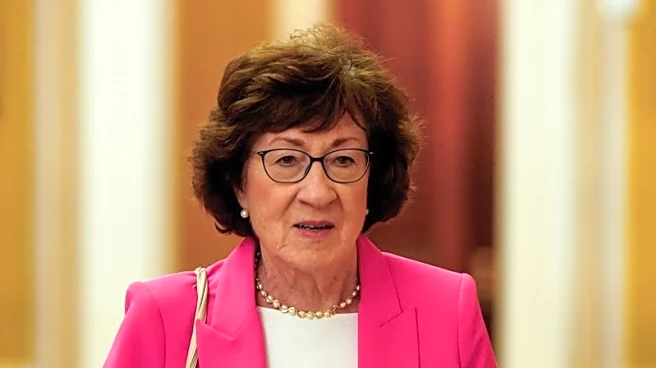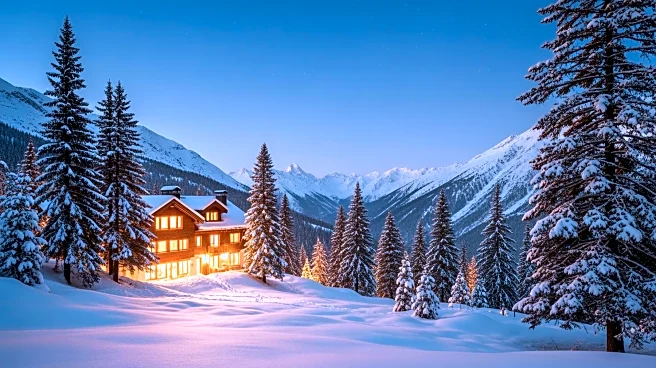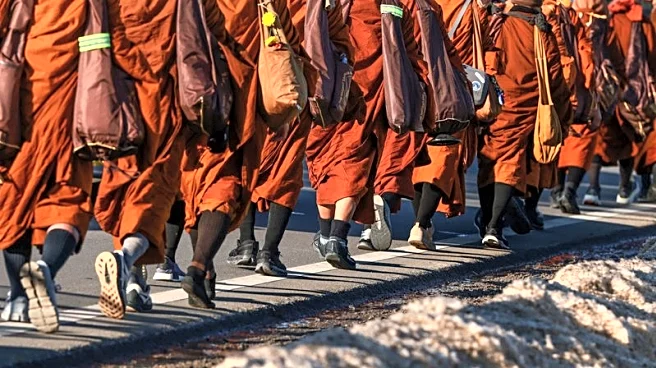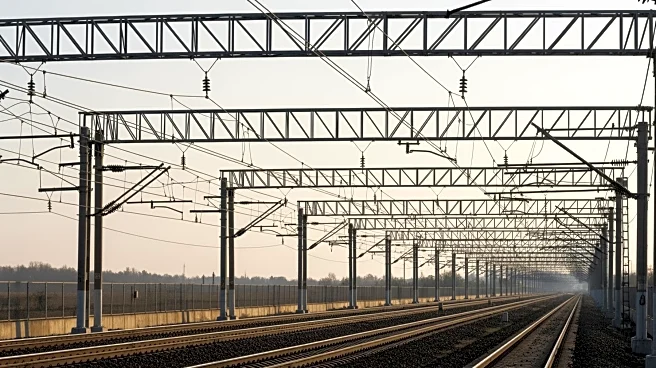What's Happening?
President Donald Trump has announced plans for a second summit with Russian President Vladimir Putin, to be held in Budapest, Hungary. This meeting aims to address the ongoing conflict in Ukraine. Hungarian
Prime Minister Viktor Orbán, known for his far-right populist rule, has welcomed the summit, highlighting Hungary's stance as a pro-peace nation. The summit follows a previous meeting between Trump and Putin in Alaska, which did not yield significant progress toward peace. The Budapest summit is expected to occur after upcoming talks between U.S. Secretary of State Marco Rubio and Russian Foreign Minister Sergei Lavrov. Ukrainian President Volodymyr Zelenskyy, who is advocating for increased military support, views the talks as a sign of Russia's defensive posture.
Why It's Important?
The planned summit in Hungary underscores the complex geopolitical dynamics surrounding the Ukraine conflict. For Hungary, hosting the summit elevates its international profile, despite its controversial ties with Russia. The meeting could influence U.S. foreign policy and NATO's stance on the conflict, especially as Trump has urged NATO countries to stop purchasing Russian oil. The summit's outcome could impact global energy markets and diplomatic relations, particularly if it leads to a shift in military or economic strategies. However, Hungary's role as host may draw criticism due to its continued energy ties with Russia and potential alignment with Kremlin narratives.
What's Next?
The Budapest summit is anticipated to follow discussions between U.S. and Russian officials, potentially setting the stage for high-stakes negotiations. The international community will closely watch for any shifts in U.S.-Russia relations or changes in the conflict's trajectory. Hungary's involvement may also prompt scrutiny from European Union partners, given its unique position within the EU and its relationship with Russia. The summit's success or failure could influence future diplomatic efforts and the broader geopolitical landscape.
Beyond the Headlines
Hosting the summit places Hungary in a delicate position, balancing its EU membership with its ties to Russia. The event could have long-term implications for Hungary's foreign policy and its standing within the EU. Additionally, the summit may affect public perception of Hungary's government, particularly if it is seen as supporting Russian interests. The legal and ethical dimensions of hosting a leader with an ICC arrest warrant, like Putin, add complexity to Hungary's diplomatic strategy.









